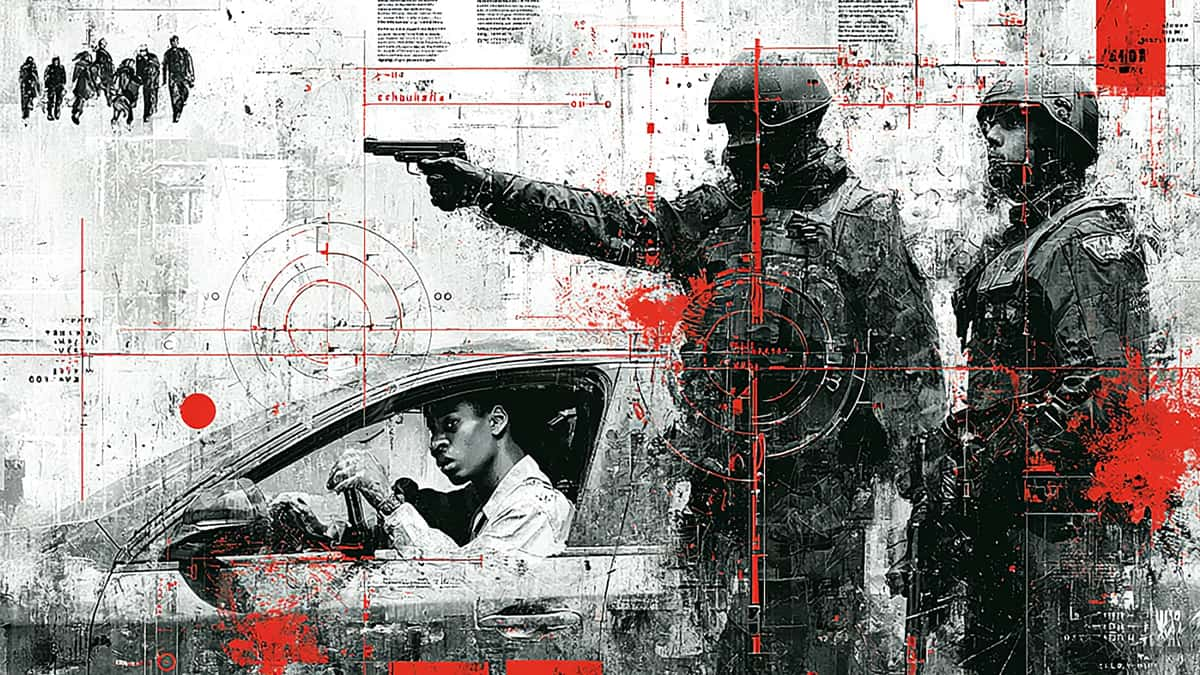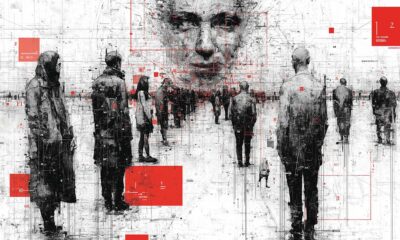France
The French Exception: Democracy Stops at the Police Badge
France, a founding member of the European Union and a nation that prides itself on the principles of liberté, égalité, fraternité, finds itself at the centre of an increasingly urgent debate about police accountability and democratic policing. Over the past decade, a series of high-profile cases involving police violence, discriminatory practices, and institutional failures have exposed deep-seated problems within French law enforcement that appear to contradict fundamental European Union standards on human rights and democratic governance.
The stakes extend far beyond France’s borders. As one of the European Union’s most influential members, France’s approach to policing and human rights sets precedents that reverberate across the continent. The country’s systematic violations of democratic policing principles threaten not only the rights of French citizens but also the credibility of European institutions and the values they claim to represent. In a modern era, France’s failures provide ammunition for those who question the universality of human rights and the effectiveness of international oversight mechanisms.
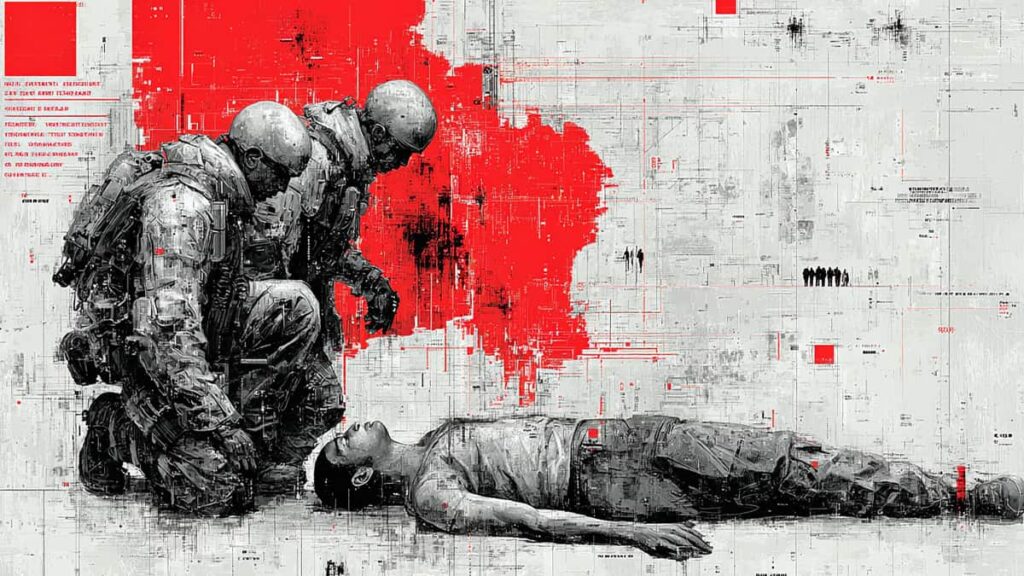
Adama Traoré Case: Proving Justice Is Optional
The death of Adama Traoré on July 19, 2016, in Beaumont-sur-Oise, a suburb north of Paris, has become emblematic of France’s struggle with police accountability and institutional racism. Traoré, a 24-year-old Black French man of Malian descent, died in police custody after being arrested during a routine identity check. His death would spark a movement that continues to challenge French authorities nearly a decade later.
According to official accounts and forensic investigations, Traoré was arrested along with his brother after a routine police check. During the arrest, three gendarmes used a prone restraint technique, pinning Traoré to the ground. He lost consciousness and was pronounced dead shortly after arrival at the police station. The circumstances surrounding his death immediately raised questions about the use of excessive force and the adequacy of police training in restraint techniques.
The case exposed fundamental flaws in France’s approach to investigating police-related deaths. Despite multiple expert reports and years of legal proceedings, the three officers involved were ultimately exonerated in 2023, with the court ruling that the force used met the criteria of “strict necessity and proportionality” under French law. This decision came despite expert testimony establishing a causal link between the officers’ actions and Traoré’s death.
The Adama Traoré case gained international attention when it was brought before the UN Human Rights Committee in October 2024. Its intervention highlighted how the case exemplified broader patterns of excessive force against people of African descent and systemic racist practices in France. The Committee noted that France had failed to ensure the right to non-discrimination and the right to life, fundamental principles enshrined in European human rights frameworks. This international rebuke underscored the gap between France’s commitments to European values and its actual practices.
The death of Adama Traoré catalyzed a grassroots movement led by his sister, Assa Traoré, who founded the “Truth and Justice Committee for Adama”. The movement, operating under the hashtag #JusticePourAdama, has become a powerful force for police accountability in France, drawing parallels to the Black Lives Matter movement in the United States.
The Adama Traoré case highlights the inadequacy of current oversight mechanisms for investigating police-related deaths and illustrates the broader pattern of discriminatory policing that disproportionately affects France’s minority communities. Police crimes are concentrated on non-white proletarians,” with Traoré representing a typical victim profile: “a black proletarian from a suburban neighbourhood who was chased by the police, captured and strangled”.
Despite mounting evidence and international criticism, French authorities continue to deny the existence of institutional racism in policing, a stance that has drawn criticism from UN bodies and human rights organizations.
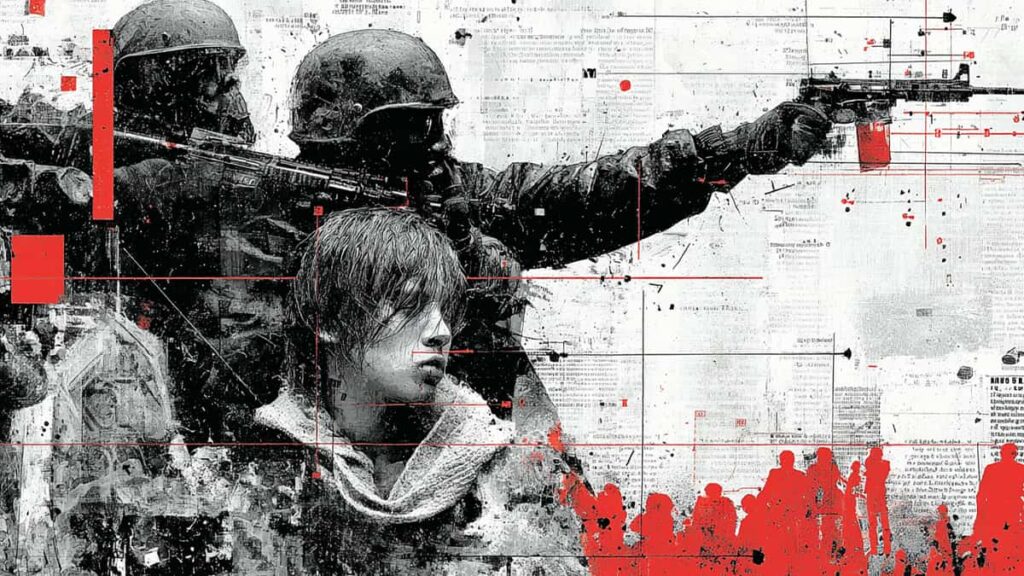
Nahel Merzouk Killing: Shoot First, Justify Later
The killing of Nahel Merzouk on June 27, 2023, marked a tragic continuation of the patterns established in the Adama Traoré case, demonstrating that little had changed in French policing practices despite years of activism and international pressure.
Nahel Merzouk, a French 17-year-old teenager of Moroccan and Algerian descent, was shot at point-blank range by police officer Florian M. during a traffic stop. Unlike many previous cases, this incident was captured on mobile phone footage, which contradicted the initial police narrative that claimed Merzouk had driven his car at the officer. The video evidence showed two officers standing at a stationary car, with one pointing a weapon at the driver.
In a significant development, French prosecutors announced in March 2025 that officer Florian M. would face trial for murder, with proceedings expected to begin in the second or third quarter of 2026. The investigating magistrates’ written order stated that “Nothing shows Florian M. was authorized in the circumstances to use his weapon, in violation of the principles of proportionality and absolute necessity”.
This case provides a clear example of how French policing practices diverge from European standards on the use of force. The European Code of Police Ethics, adopted by the Council of Europe in 2001, establishes clear principles for the use of force by law enforcement – when strictly necessary and proportionate to the threat faced. The investigating magistrates’ finding that officer Florian M. was not authorized to use his weapon under the circumstances directly contradicts these European standards.
The riots that followed the shooting reflected deep-seated frustrations with discriminatory policing practices and the lack of accountability for police violence. Also, groups like the Truth and Justice Committee for Adama have used the Nahel case to highlight ongoing patterns of police violence and the need for systemic reform.

France’s Racial Maths: Republic of Selective Enforcement
The practice of racial profiling, known in France as “contrôle au faciès,” represents one of the most pervasive and documented forms of discriminatory policing in the country. The European Court of Human Rights’ landmark ruling against France in June 2025 marked the first time the court had condemned the country for discriminatory identity checks, providing international legal validation for what civil society organizations had been documenting for decades. The extent of racial profiling in France is well-documented through various studies and reports.
The European Court of Human Rights (ECHR) ruling centered on the case of Karim Touil, a French citizen of African descent who was stopped by police three times within ten days in the eastern city of Besançon in 2011. The court found that the French government had provided no “objective and reasonable justification” for these stops, ruling that they constituted discriminatory treatment that the French state was unable to refute. The court ordered France to pay Touil €3,000 in compensation, but the symbolic value of the ruling far exceeded its monetary component.
The ECHR acknowledged the difficulties faced by police officers who must make quick decisions about potential threats to public order or security. However, in Touil’s case, the court presumed “discriminatory treatment” based on the pattern and frequency of stops without apparent justification. This ruling established important legal precedent for challenging racial profiling practices across Europe and provided a framework for future cases.
Human Rights Watch and Amnesty International reported in 2024 that racial profiling was widespread throughout the country and deeply rooted in police practices. Their research documented how young men and boys perceived as black or Arab, some as young as 10 years old, were subjected to “abusive and illegal identity checks”. These findings align with broader European research showing that racial and religious minorities are stopped more frequently by police across much of Europe, despite generally lower crime rates among these groups.
The persistence of these practices despite legal prohibitions and international criticism demonstrates the institutional nature of the problem. French law prohibits discrimination based on race or ethnicity, yet the statistical evidence shows systematic targeting of minority communities. This contradiction between legal frameworks and actual practices highlights the gap between France’s formal commitments to equality and the reality experienced by its citizens.
Yellow Vest Protests: Dialogue Through Tear Gas
The Yellow Vest (Gilets Jaunes) protests that began in November 2018 marked a significant escalation in police violence in France, extending beyond the traditional targets of minority communities to include predominantly white, working-class protesters.
The Yellow Vest movement, initially focused on fuel tax increases, evolved into a broader protest against economic inequality and government policies. The police response was characterized by unprecedented levels of violence against demonstrators, leading to numerous serious injuries and international condemnation.
French authorities deployed controversial weapons including LBD (Lanceur de Balles de Défense) launchers and GLI-F4 grenades, which have been criticized by human rights organizations for their potential to cause severe injuries. The use of these weapons resulted in documented cases of protesters losing eyes, suffering traumatic brain injuries, and experiencing permanent disabilities. The scale of violence was documented by volunteer medical teams who treated protesters during demonstrations.
The French government’s response to criticism of police violence during the Yellow Vest protests has been largely defensive, with officials emphasizing the challenges faced by law enforcement rather than addressing the systematic nature of the violence. This response pattern mirrors the institutional reaction to other cases of police violence, suggesting a broader reluctance to acknowledge and address systemic problems.
The Council of Europe and various NGOs have criticized French authorities for their handling of the protests. The Council of Europe’s Commissioner for Human Rights specifically denounced the brutality of French police against demonstrators, highlighting violations of European human rights standards. Despite this international criticism, concrete reforms to protest policing practices have been limited.
The international attention generated by the Yellow Vest protests has also highlighted the broader problems with French policing. Media coverage and human rights reports have drawn connections between the violence against protesters and the systematic discrimination faced by minority communities, revealing the institutional nature of police violence in France.
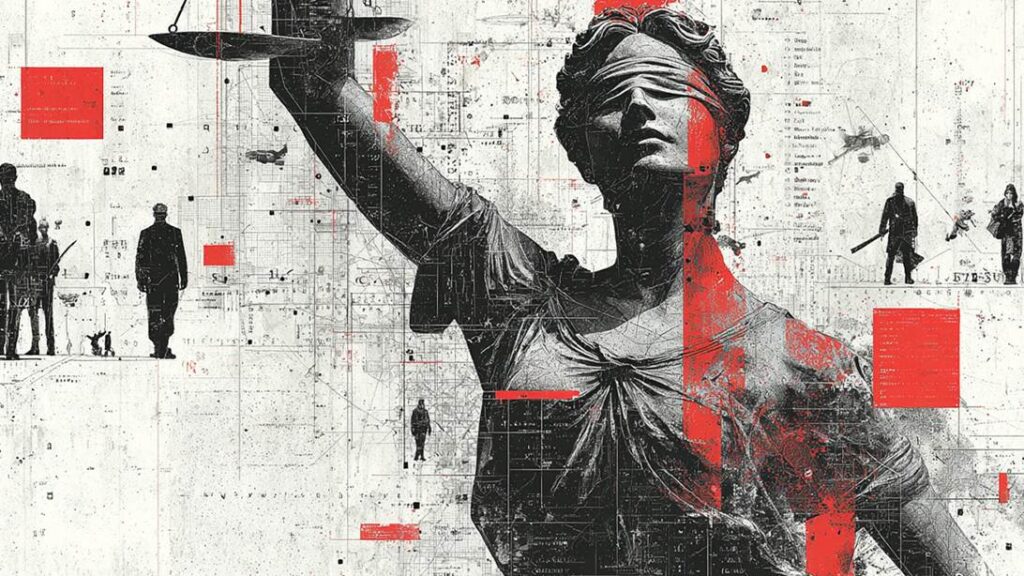
EU Standards and France’s Creative Interpretation
The European Union’s framework for democratic policing and human rights protection provides clear standards against which member states’ practices can be evaluated. France’s systematic failures to meet these standards, as documented through various cases and international rulings, reveal a troubling pattern of non-compliance with fundamental European values and legal obligations.
- The European Code of Police Ethics and Democratic Principles
The previously mentioned European Code of Police Ethics, adopted by the Council of Europe in 2001, establishes comprehensive principles for police conduct in democratic societies. The code emphasizes that police powers must be exercised according to the rule of law, with respect for human rights, and subject to appropriate oversight mechanisms. These principles form the foundation of democratic policing in Europe and provide benchmarks for evaluating national practices.
The code specifically addresses the use of force, requiring that it be strictly necessary, proportionate, and subject to legal accountability. It also emphasizes the importance of non-discrimination and the need for police to serve all members of society equally. France’s documented practices of racial profiling, excessive use of force, and inadequate accountability mechanisms represent systematic violations of these fundamental principles.
The European Parliament’s 2022 study on democratic oversight of police reinforces these principles, emphasizing that “all democratic police systems share the ideal that police powers are to be used according to the rule of law and not according to the whims of the ruler”. The study highlights the importance of independent oversight bodies that are well-resourced and have clear mandates to investigate police misconduct.
- UN Standards and the Minnesota Protocol
The United Nations’ Minnesota Protocol provides detailed guidance for investigating deaths that may involve state responsibility, including deaths in police custody or resulting from police actions. The protocol requires that investigations be prompt, thorough, independent, and subject to public scrutiny. It also mandates that states identify systemic failures and implement measures to prevent future cases.
France’s handling of cases like Adama Traoré and other police-related deaths fails to meet these international standards. The prolonged investigations, lack of independence from police hierarchies, and ultimate exoneration of officers despite evidence of wrongdoing demonstrate systematic non-compliance with the Minnesota Protocol.
- European Court of Human Rights Jurisprudence
The European Court of Human Rights has developed extensive jurisprudence on police accountability and the use of force, establishing clear obligations for member states. The court’s recent ruling against France for racial profiling represents just one example of how French practices violate European human rights standards. The court has consistently emphasized that states must provide objective justification for police actions and ensure effective remedies for victims of police misconduct.
The ECHR’s approach to burden of proof in discrimination cases, as demonstrated in the Karim Touil case, reflects broader European standards that prioritize the protection of individual rights over state convenience. France’s defensive response to ECHR rulings, often emphasizing isolated incidents rather than systemic problems, suggests a fundamental misunderstanding of European human rights obligations.
Conclusion
While police accountability challenges exist across the European Union, France’s position as having the highest absolute numbers of police-related deaths sets it apart from other member states. The statistical evidence shows that France recorded 107 deaths in custody or during police operations between 2020 and 2022, significantly higher than other large EU countries like Germany (60 deaths) or Spain (66 deaths).
The resistance to transparency measures, such as the rejection of proposals to require receipts for identity checks, also distinguishes France from other EU member states that have implemented such accountability mechanisms.
The evidence presented in this investigation reveals a troubling pattern of police accountability failures in France that systematically violate European Union standards for democratic policing and human rights protection. From the death of Adama Traoré in 2016 to the killing of Nahel Merzouk in 2023, from widespread racial profiling to violent suppression of protests, French law enforcement has demonstrated a consistent disregard for the principles that should govern policing in democratic societies.
Perhaps most concerning is the institutional resistance to reform demonstrated by French authorities. The rejection of basic transparency measures, the defensive responses to international criticism, and the continued denial of systemic racism in policing suggest a fundamental unwillingness to address these problems. This resistance undermines France’s credibility as a champion of European values and threatens the principles of equality and human dignity that form the foundation of the European project.
The European Union also bears responsibility for ensuring that member states comply with democratic policing standards. The systematic nature of France’s violations suggests the need for stronger enforcement mechanisms and more robust monitoring of police practices across the EU. The principles of democratic governance and human rights protection that define European identity must be actively defended, not merely proclaimed.
As France continues to grapple with these challenges, the international community must maintain pressure for reform while supporting the civil society organizations and activists who risk harassment and persecution to demand justice. The path forward requires that French authorities recognize institutional racism and violence, implement independent oversight, transparency measures (e.g., receipts for identity checks), and reforms to align with EU standards on force and accountability as public safety is a prerequisite for legitimate and effective law enforcement in democratic societies. Only through such fundamental changes can France begin to align its policing practices with the European values it claims to champion.


